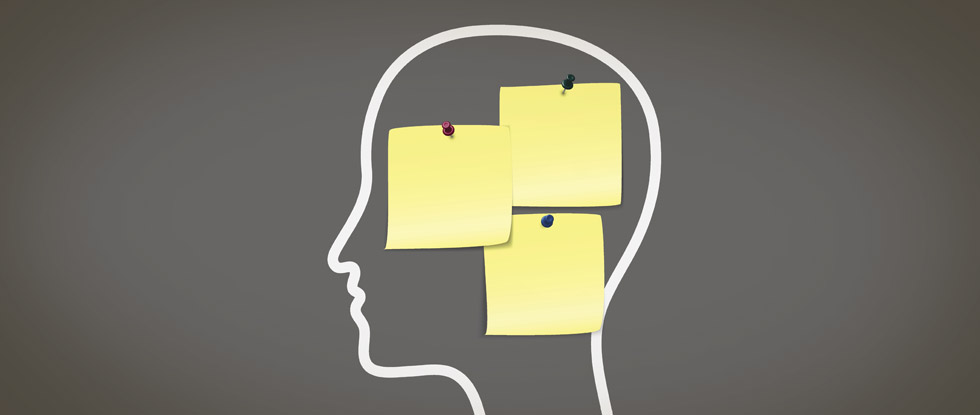Most physicians use multiple study methods to prepare for their medical board exams, and most have a multitude of tricks for remembering what they need to know — from mnemonics and anecdotes to visual memory. Did you know, though, that the very act of testing yourself can improve your recall?
The main reason is that when you test yourself, you ask your brain to remember information on cue. Scientists posit that this process could perhaps create and organize neural connections that our brains later recognize.
Going a Step Further with Fill-in-the-Blank Questions
In NEJM Knowledge+, we have thousands of multiple-choice, case-based questions that you can use to test yourself in preparation for medical board exams, but we’ve also taken the idea of active recall one step further — by including fill-in-the-blank questions. Without a list of answer choices, these questions can be harder to answer than multiple-choice questions and may more closely mimic the kind of recall required in clinical practice.
Here’s an example from NEJM Knowledge+:
Unlike a long case-based question, you don’t get a patient history, an image, or lab results, and there aren’t any answer choices to jog your memory. All you can do is search your own memory bank to recall the association among petechiae, gingival bleeding, and thrombocytopenia (the correct answer).
Research shows that although you may feel anxiety while testing your recall like this, the struggle is worth it. The process of racking your brain for an answer is likely to help you remember the information when you later need it — whether in practice or on your boards.
You certainly won’t see fill-in-the-blank questions on your medical board exams, but if you test yourself with these active-recall challenges, you might not even need the prompts in the multiple-choice questions in the actual exam.
Memorizing and Reasoning — Two Approaches for Medical Board Exams
Every fill-in-the-blank question in NEJM Knowledge+ has a “Claim as a Synonym” option, where users can tell us that they think their answer is also correct. For example, our correct answer might be “oral contraceptive pill,” but there are a lot of synonyms that are also correct (OCP, oral contraceptive, etc), and users can let us know these. From reading thousands of these synonym requests, we have seen two clear ways that people complete the fill-in-the-blank questions — by memorizing and by reasoning.
Memorizers tend to approach the blank in the question like a computer might, retrieving the correct answer they recall from the corresponding multiple-choice question — it’s simple playback. We often receive synonym requests for exact matches to the correct answer from the case question, when a shorter or simpler answer would be acceptable in the blank. For example, our correct answer might be 100% oxygen, but the user types in all the details, word for word, from the related multiple-choice question: 100% oxygen administered at 10 to 15 liters per minute for 15 to 30 minutes. This action suggests that rote memorization may be at work (or perhaps just a type A personality!).
Reasoners read through the fill-in-the-blank question as if they have never seen the related case-based question before and recall the answer from their own mental bank of medical knowledge —this type of mental processing requires more than simple playback. We see this in synonym requests for specific drugs when the fill-in-the-blank question asked for a class of drug .
The best approach might be a combination of memorizing and reasoning, when it comes to active recall for medical board exams. Reasoning through questions is a method that will serve you well, given that each question is going to test you on a slightly different point. Memorizing will serve you well when you need quick recall of facts — these facts often build in a complex patient case leading you to a differential diagnosis and a set of treatment options (one of which must be absolutely correct in a multiple-choice, board-style question).
As Nate Kornell, psychologist at Williams College, said in our Q&A on learning and memory, “Looking things up is great, but knowledge is always going to be important.”
What is your experience with answering fill-in-the-blank questions in NEJM Knowledge+? Have you improved your recall for medical board exams by testing yourself?




I have not experience yet
What would be more useful if it was evidence based.
It was not evidence based. Only opinion.
Disappointing.
Awesome guidance for understudies planning for their medicinal exams! As a restorative understudy. the most accommodating activity was to think about ahead of schedule and concentrate frequently.
much obliged for the post!
Thanks for the tips. Do you think that is a good practice to listen to a doctor while he is doing tests or something? I have a friend that is a doctor and offer me an internship at http://www.vidamaxmc.com but I don’t know if that will affect me or help me with my classes.
In our post “Internal Medicine Certification Exam: Your Residency as a Study Tool,” we advised physicians in training to use every encounter on the wards as a learning opportunity: “Experienced medical educators offer third-year residents simple advice: Read, at the end of every work day. Turn to relevant literature while a patient interaction is fresh in your mind. You may not have the time (or the specific need) for this at the bedside moment. But later that day, while the day’s cases are still fresh in your mind, seek out information that relates to clinical scenarios you encountered.” You may also find that figuring out your study style and using one of our study guides with useful strategies for learners like you will help you prepare for your exams. We hope that these and others of our posts will help you find what works for you.